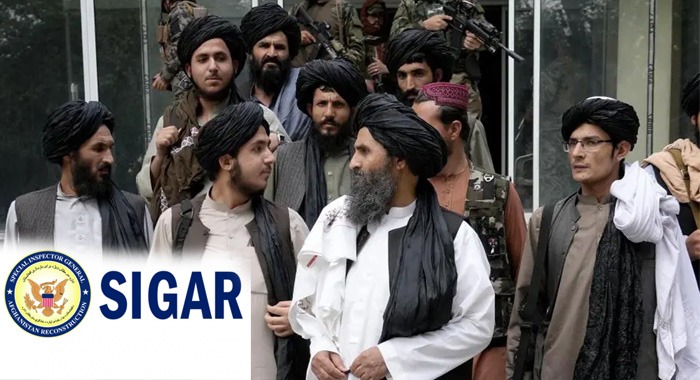Afghanistan continues to serve as a sanctuary for major transnational terrorist groups nearly four years after the Taliban’s return to power, the U.S. Special Inspector General for Afghanistan Reconstruction (SIGAR) has warned in a damning new report, casting serious doubt on the Taliban’s commitment to counterterrorism and regional stability.
Released in SIGAR’s latest quarterly assessment, the report highlights a stark deterioration in Afghanistan’s security, humanitarian, and diplomatic landscape, despite pledges made under the 2020 Doha Agreement. It found that militant networks such as ISIS-Khorasan, Al-Qaeda, and Tehrik-i-Taliban Pakistan (TTP) remain deeply entrenched and operational. ISIS-K was identified as the “largest transnational terrorist threat” currently emanating from Afghan territory, posing direct risks to minorities, foreign nationals, diplomats, and UN personnel.
Rather than dismantling these groups, the Taliban is accused of enabling them—particularly the TTP, which fields an estimated 6,500 fighters in eastern Afghanistan. The report states that this support violates the core tenets of the Doha Agreement and fuels growing international fears that Afghanistan is once again becoming a breeding ground for global terrorism.
“The Taliban’s actions clearly contradict their promises,” SIGAR stated. “Their ongoing ties to extremist groups are a direct threat to regional security and international peace.”
At the same time, the country’s humanitarian crisis has deepened. The report cites the U.S. decision to suspend aid in April as a major blow, cutting off millions of Afghans from life-saving assistance. The International Rescue Committee has warned of “devastating impacts” on already vulnerable populations. Prior to the cutoff, the U.S. had contributed over $30 million to the United Nations’ 2025 Humanitarian Response Plan for Afghanistan. The sudden halt has thrown critical aid programs into disarray.
Diplomatic efforts remain at a standstill. Recent UN-led talks in Doha have yielded no progress, with the Taliban refusing to meet international standards on human rights and governance in exchange for economic cooperation. U.S. engagement with the Taliban has been reduced to essential matters only, including counterterrorism coordination and the safe return of American citizens. Officials in Washington have made clear that no substantial support can resume so long as Afghanistan harbors terrorists and enforces repressive policies—particularly against women and girls.
SIGAR concluded that the Taliban’s refusal to honor its international commitments, its protection of terrorist groups, and its repressive governance have not only exacerbated Afghanistan’s isolation but also intensified threats to the broader region. Without meaningful reform, the report warned, Afghanistan’s trajectory will remain one of crisis, extremism, and diplomatic estrangement.





